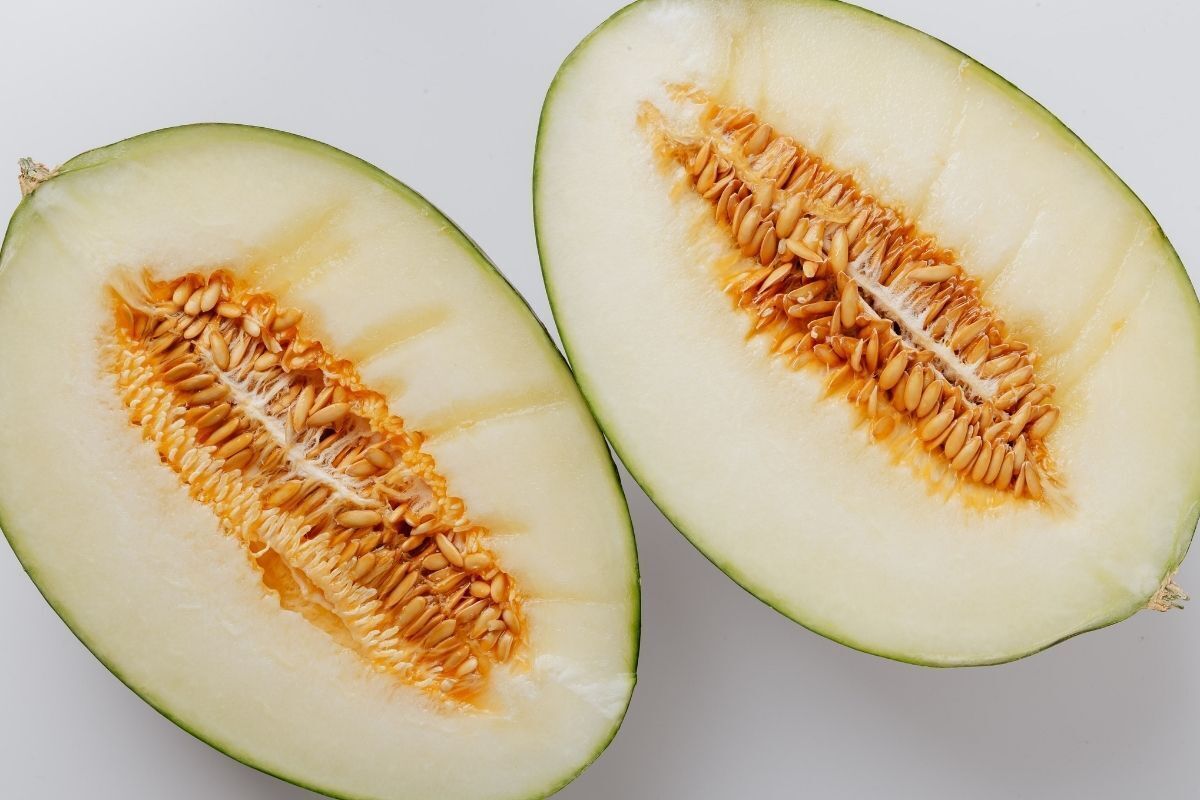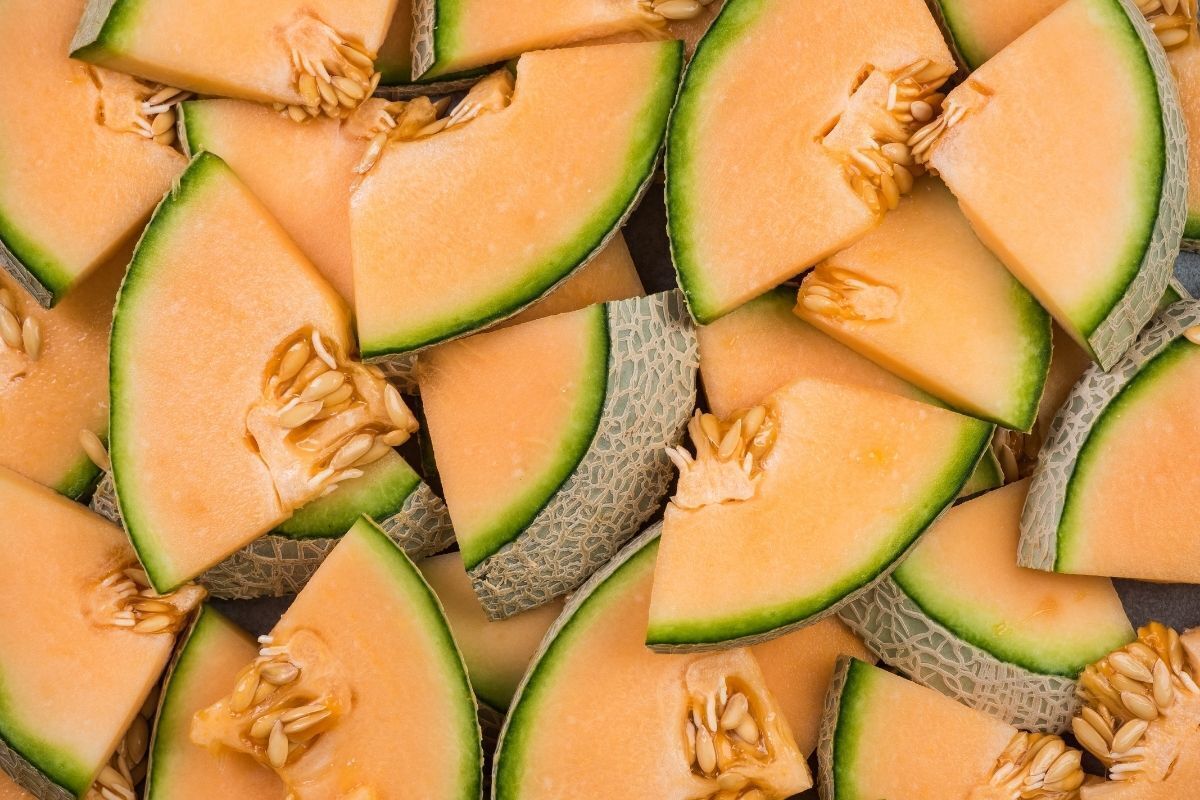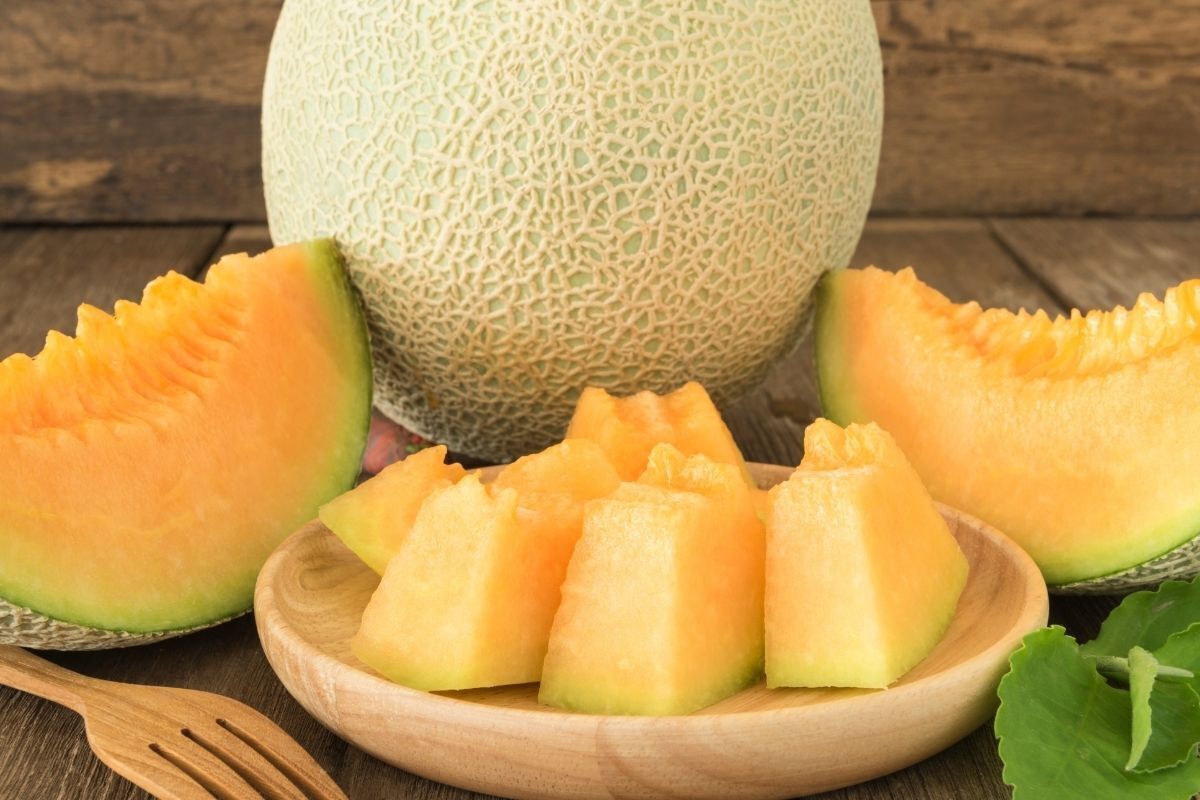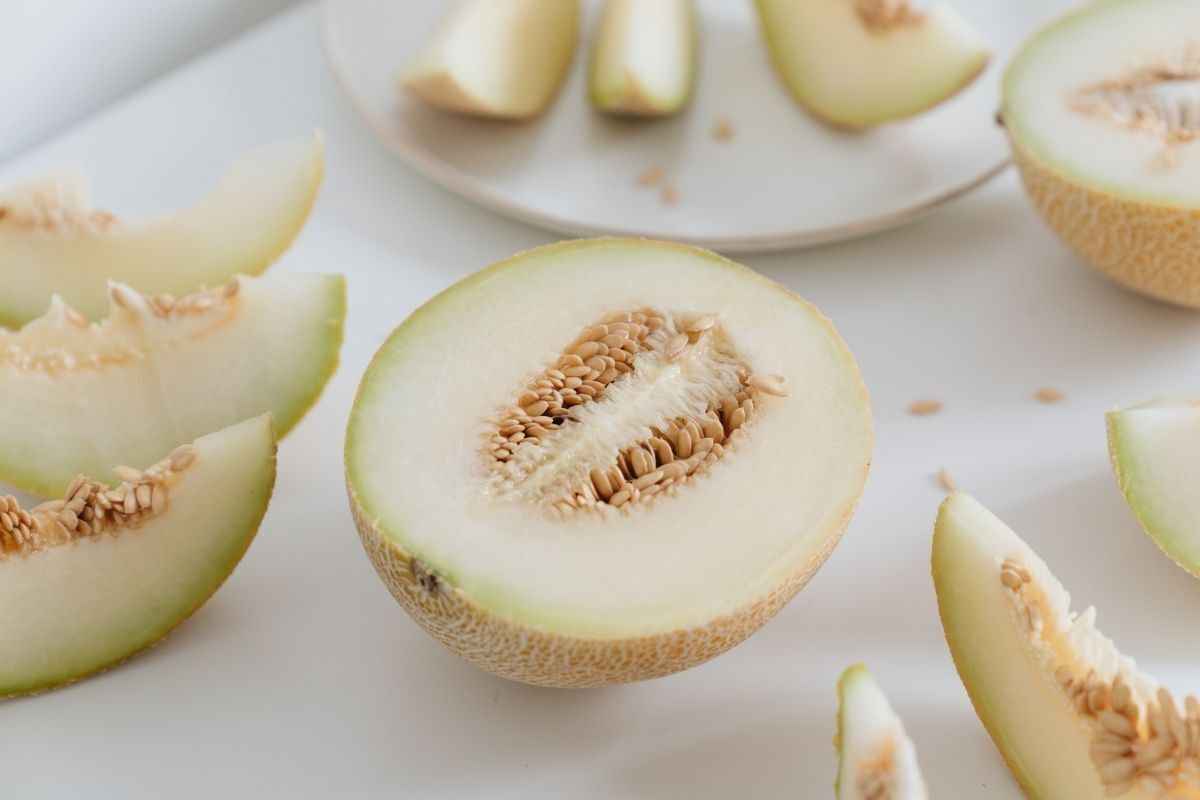Table of contents
Do you know the benefits of melons?

Low in calories and with diuretic properties, melon is a fruit that has many health benefits. As well as helping to reduce fluid retention and prevent premature ageing, it also helps to strengthen bones and teeth due to the presence of minerals that are important for these structures.
However, its main highlight is its richness in water, which makes melon excellent for the intestines. It can help prevent constipation, as well as keeping the body hydrated. Therefore, it should be eaten up to four times a week.
If you'd like to learn more about the advantages of including melon in your diet, read on. Below we'll look at the fruit's characteristics, as well as its properties and main health benefits. See more!
Understanding melons

Originating in Egypt, the melon has several different types and has many health benefits due to its diuretic and body-hydrating properties. Thanks to its nutritional value, it is an interesting fruit for all types of diets and can also help with weight loss. To find out more, read the next section of the article!
Origin and characteristics of the melon fruit
The melon is a refreshing vegetable from the same family as the watermelon and the cucumber, whose origins are quite ancient. According to some historical records, it was grown in both Egypt and Iran as far back as 2500 BC. However, there is some controversy among researchers as to its origins.
In this way, just as some documents point to cultivation in the regions indicated, there are others that claim that the melon first appeared in India. However, different studies point to the fact that the first plantations appeared on the African continent.
What is melon good for?
Due to its low calories and ability to reduce fluid retention, melon helps to reduce fluid retention. This is also thanks to its diuretic properties and ability to keep the body hydrated. Another point that stands out in this regard is the presence of fiber, which helps with the feeling of satiety.
It is therefore recommended that you eat melon on average three or four times a week, which will help you to maintain a healthier and more balanced diet. Although it is especially beneficial for those who are trying to lose weight, it can be eaten by anyone.
Melon properties
Melon has diuretic properties due to the amount of liquid it contains. This also helps with bowel function, as hydration prevents constipation. In addition, the fiber also helps a lot in this regard.
Due to the melon's nutritional richness, it is possible to highlight among its properties the strengthening of bones and teeth, structures that need calcium and other minerals to remain healthy. These are found in satisfactory quantities in the melon.
Types of melon
Nowadays, there are several types of melon with different characteristics, especially in terms of appearance and functionality, so it's important to know a little more about each one before choosing the one that best suits your diet.
If you want to know more about the yellow melon, the orange melon, the matisse melon, the galia melon, the cantaloupe melon and the frog skin melon, just read on to find out the main information about them.
Yellow melon
The yellow melon is the most common in Brazilian supermarkets. Its rind can be smooth or wrinkled and, in general, the color ranges from yellow to dark green. The flesh can also vary and can be either white or light green.
Orange melon
The main difference between the orange melon and the other types is in its rind, which is smooth and has a light yellow, almost white color. It can therefore be easily distinguished from the yellow melon. It is also worth mentioning that its flesh is very close in color to the rind and is also almost white.
Matisse melon
With a white rind with greenish streaks, the matisse melon is also known as the dino melon. It has a sweeter taste and its flesh is white. Because of its flavour, it is often used in savoury recipes and also accompanies some smoked meats. It is therefore a versatile ingredient for culinary purposes.
Cantaloupe melon
The cantaloupe is an aromatic variant of the melon, with an average flesh size of 25 mm and an orange color. Its rind is also lacy and quite light. Because of its characteristics, this fruit should always be stored in a refrigerated area, as it spoils more quickly than other melons.
Galician or Israeli melon
The Gaulish or Israeli melon is a little difficult to find in Brazil, but it is one of the most interesting varieties of the fruit. With its greenish flesh and yellow rind, it belongs to the family of aromatic melons and has a very delicate smell. It is used to prepare some refined recipes, such as canapés, and goes well with a variety of ingredients.
Skin melon
With a green rind and an oval shape, the frog skin melon has a white and very sweet flesh. It is generally used in the preparation of sweets, but it also works well as an ingredient for sorbets, pasta fillings and the preparation of drinks, adding an even more refreshing flavor to them.
Melon benefits

With its antioxidant and moisturizing properties, melon has health benefits such as preventing premature ageing. It is also capable of helping to improve bowel function and has diuretic properties, which help to prevent problems such as urinary tract problems. The benefits of melon will be explored in more detail below!
Moisturizing and antioxidant
Melons are an excellent choice for hydrating the body due to their water content. In addition, due to their nutritional properties, melons have an antioxidant function, which helps to maintain healthy skin. According to experts, these characteristics make them ideal for maintaining weight.
The presence of water makes melons low in calories, and when combined with the fruit's fiber, it makes you feel full and helps the body eliminate substances that can be toxic and come from a bad diet.
Fights premature aging
The presence of antioxidants in melon also helps to combat premature ageing, as they act to limit the action of free radicals. In this way, the skin remains firmer and healthier, keeping its youthful appearance for longer. In addition to the pulp of the fruit, its seeds also have this benefit.
Melon seeds contain omega 6 and omega 9, substances that respectively help promote skin renewal and prevent it from becoming dehydrated.
Improves bowel function
Due to the presence of fiber in its composition, melon helps to improve bowel function, thus preventing constipation and reducing the discomfort that people can experience. Another aspect that favors the bowel is the presence of water in the fruit.
As melons are rich in water, this helps to promote more regular intestinal transit, thus improving the health of the organ as a whole and making the stools more hydrated and less hard, which causes less discomfort during elimination.
Has a diuretic action and prevents urinary problems
Melon can be seen as a natural diuretic, helping to combat fluid retention and aiding the weight loss process. It is also worth mentioning that when this fruit is consumed frequently enough, it can prevent urinary tract problems.
This is due to the presence of vitamins and minerals, which help to facilitate the work of the kidneys through their ability to eliminate toxic substances produced by the body. Another aspect that favors the urinary tract is the alkaline pH of the melon, which neutralizes the urine and prevents the proliferation of micro-organisms.
Strengthens the immune system
The significant presence of flavonoids in melons helps to strengthen the immune system. These components have an antioxidant and anti-inflammatory effect, as well as carotenoids and minerals, thus strengthening immunity as a whole.
It is also worth noting that flavonoids have an antiviral effect, making the body less susceptible to opportunistic diseases such as colds and flu, which are caused by viruses. It is also worth noting that these compounds help prevent diseases such as cancer.
Improves vision health
Among the various compounds present in melons, zeaxatin can be highlighted as one of those responsible for improving vision health. This carotenoid is very similar to lutein and is found in yellow and orange fruits and vegetables.
This compound acts as a photoprotector during sun exposure and is able to absorb harmful sun rays, blocking them and protecting the eyes from the damage that could be caused by this type of exposure, which is so common in everyday life.
Strengthens bone and teeth health
Although the pulp of the melon has properties capable of strengthening the health of bones and teeth due to the presence of calcium, this benefit is more associated with the seeds of the fruit, which are even richer in this mineral. Thus, they help to keep the structures in question healthy.
Another point worth highlighting about the benefits of melon seeds for bones and teeth is their ability to prevent diseases that are usually associated with them, such as osteoporosis, osteopenia and tooth decay.
Prevents heart disease
The carotenoids present in melons are essential for preventing a number of heart diseases. In addition, as the fruit is rich in potassium, it plays a fundamental role in regulating blood pressure, as this mineral acts directly in the formation of muscle tissue and provides the body with more energy.
Therefore, regular consumption of melon can reduce the risk of a number of heart diseases, such as heart attacks. It also plays a very important role in blood circulation.
Helps control blood pressure
Potassium is a fundamental nutrient for controlling blood pressure, due to its ability to promote relaxation of the arteries, so that blood circulation becomes easier. As this mineral is present in melon in significant quantities, keeping this fruit in the diet brings this benefit.
It is also worth noting that potassium is essential for maintaining sodium levels in the blood. It is able to eliminate excesses of this nutrient, which ensures a reduction in blood pressure and the problems it causes.
Helps regulate menstruation and blood circulation
Regular consumption of melon can help regulate the menstrual cycle. This is due to the fruit's ability to improve blood circulation, something that is directly linked to its potassium levels. However, it is worth noting that melon also has other compounds with anticoagulant properties.
Other compounds present in the fruit have a calming effect, so they ease the mood swings that many women go through during PMS and the menstrual cycle itself.
Relieves menopause symptoms
Thanks to its ability to invigorate the body and its calming properties, melon is a fruit that can help relieve the symptoms of the menopause. This is due to the presence of water in the fruit's composition, but it is also associated with minerals such as phosphorus and magnesium.
In addition, B-complex vitamins and vitamin A also play their part by strengthening bones and reducing the feeling of flabbiness in women's bodies. All this helps to ease the anxiety generated by this phase of life.
How to eat melon

There are several ways to consume melon, although the most common is the fresh fruit pulp, it can also be used in various recipes, whether sweet or savory, and combined with other ingredients that bring health benefits. See more about this in the next section of the article and learn some ways to include melon in your diet!
Eating the fruit
Regardless of the variety you choose, melons can be eaten fresh, simply remove the skin and enjoy the pulp. The seeds can also be used, but they are generally used to make oils, something that cannot easily be done at home.
It is recommended that melon is consumed between three and four times a week so that its benefits are really felt by the body. These figures refer to people on diets focused on weight loss, but can also be adopted by other groups, as melon has a low calorie content.
Use in cooking
Although many people may consider the culinary use of melons to be unusual, the truth is that this fruit can be found in both savory and sweet recipes. This is due to its discreet flavor, which, regardless of the variety, allows melons to be combined effectively with a variety of ingredients.
It can therefore be used to make drinks and sweets as well as to prepare canapés. A very common use in savoury dishes is as an accompaniment to meat, especially fish, as it gives the dish a refreshing sensation and a discreet sweet taste.
Melon juice recipe
Melon juice can be prepared with other refreshing foods that enhance the fruit's properties, including cucumber and lemon, which are also rich in fiber and have antioxidants in their composition. A drink containing all three helps to regulate the intestines.
Another ingredient that can be used in melon juice is ginger, which should be included in the drink especially when it is intended to help with weight loss, as this spice has the ability to speed up the metabolism. Finally, mint is also a great option, as it helps treat digestive problems.
Ingredients
The ingredients for melon juice are:
- ½ cup of melon pulp;
- Juice of ½ lemon;
- 1 cucumber;
- Ginger zest to taste;
- 2 tablespoons of fresh mint;
- 1 pinch of cayenne pepper (optional).
This recipe is aimed at weight loss diets, as both ginger and cayenne pepper speed up the metabolism.
How to do it
Preparing melon juice is quite simple: just cut up the cucumber and melon and put them in a blender. You also need to squeeze the juice out of the lemon, taking care that the seeds are not mixed in, as this can make the drink bitter. Then add all the ingredients to the blender.
Ideally, the drink should be consumed without straining it, because when you do, most of the benefits are lost. Another point that should be noted is that storing the juice in the fridge also gradually nullifies its properties, so you should only make what you are going to consume at the time.
Other information about Melon

There is other important information about melons, such as the possible side effects of consuming them and also some contraindications. In addition, it is very important to know the correct way to store the fruit to ensure that it retains its nutritional properties and really brings health benefits. See more about this below!
After all, is melon fattening or slimming?
On its own, melon is not fattening or slimming, but it can help with weight loss diets due to its properties and composition, but to really contribute to this purpose, consumption needs to be accompanied by other changes in diet and the maintenance of healthy habits, such as an exercise routine.
When all this is put together, melon is an important ally in weight loss due to its fiber and the presence of water in its composition. Both help to provoke the feeling of satiety and therefore make those who consume the fruit feel less like eating.
Possible side effects of melon
In addition to the allergic reactions possible with any type of food, melon can cause some adverse reactions in specific groups. In this regard, it is worth mentioning diabetics, who should consult a doctor before consuming the fruit due to the presence of sugars, which can impair the control of insulin levels.
In addition, excessive consumption can cause stomach discomfort and pain in the abdomen. In some cases, symptoms such as vomiting and diarrhoea are also present. Somewhat rarer symptoms, but which can appear, are headaches.
Contraindications to melon consumption
It's worth noting that there are no contraindications associated with eating melon, so all types of people can eat it without experiencing any health complications. However, it's important to follow the quantities indicated by a nutritionist, as excesses can be harmful, even when it comes to healthy foods.
Therefore, in general, it is best to eat melon up to four times a week so that its positive properties are utilized and the benefits are really felt in the body.
How to buy and how to store melons?
It's best to buy a ripe melon, which makes it ready to eat. Once the fruit has been cut, it needs to be stored in the fridge. However, the whole melon can be kept at room temperature without losing its nutritional properties.
In the case of people who can't find ripe melons and end up buying unripe fruit, there are a few tricks that can speed up this process, such as wrapping the melon in newspaper and leaving it that way for an average of 48 hours.
Melon has many benefits!

Melon is a fruit that has very interesting nutritional properties and guarantees various health benefits. Due to the presence of antioxidants, minerals and water in its composition, it is able to guarantee good health for the intestines, the skin and also the bones and teeth.
Melons are often used in weight loss diets, something that is directly linked to their high fiber content, which makes you feel full. The fruit is also low in calories and is a versatile ingredient that can be used in both juices and savory recipes.
Throughout our article, you'll find some tips on how to include melon in your diet to take advantage of all its benefits, so if you're thinking of doing so, try to use them as a starting point!

